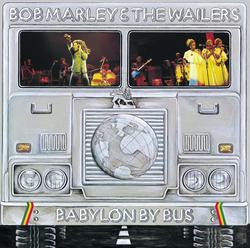This article needs additional citations for verification .(December 2023) |
| Babylon by Bus | ||||
|---|---|---|---|---|
 | ||||
| Live album by | ||||
| Released | 10 November 1978 | |||
| Recorded | 25–27 June 1978 (Paris) 1975, 1976 (London) | |||
| Genre | Reggae | |||
| Length | 73:39 | |||
| Label | Tuff Gong/Island | |||
| Producer | Bob Marley and the Wailers, Chris Blackwell and Jack Nuber | |||
| Bob Marley and the Wailers chronology | ||||
| ||||
Babylon by Bus is a live album released by Bob Marley and the Wailers in 1978. The tracks on this album are considered, with two exceptions, to be from the Pavillon de Paris concerts over 3 nights, 25–27 June 1978, during the Kaya Tour, though there are discrepancies in the track listing. [1]
Contents
- Set list
- Critical reception
- Track listing
- Original album (1978)
- The Definitive Remasters edition (2001)
- Personnel
- Musicians
- Production
- Charts
- Certifications
- References
Like the 1973 album Catch a Fire , the first release had something of a novelty cover. The windows of the bus on the front cover were cut out, revealing part of the inner sleeve. As this was a double album, the listener had a choice of four different scenes to view through the windows.